WHAT IS MICROFERTILIZER? HOW DIFFERENT MICROBIOLIC FUNCTIONS?
Organic fertilizers are quite popular among farmers. Among the types of organic fertilizers, we cannot fail to mention microbial fertilizers. So what are microbial fertilizers? What types of microorganisms are there? Is it different from organic microbial fertilizers? The following article will help you answer this question.
What is microbial fertilizer?
Microbial fertilizers or microbial fertilizers are organic fertilizers containing one or more types of beneficial microorganisms. This is a type of fertilizer commonly used today in the high-tech agricultural sector of many countries around the world, including Vietnam.
Through fertilization, microorganisms will be supplied to the soil. Nitrogen and phosphorus-decomposing microorganisms act as factories producing chemical nitrogen and phosphate fertilizers right in the soil to directly provide nutrients to crops.
There are many types of biofertilizers, however, depending on the purpose of use and the needs of the plant, choose biofertilizers with different types of microorganisms such as: nitrogen-fixing biofertilizers, phosphate-solubilizing biofertilizers or growth-stimulating biofertilizers...

What is microbial fertilizer?
Common types of microbial fertilizers
1. Nitrogen-fixing microbial fertilizer
Nitrogen plays an important role in plants. However, the nitrogen content in the soil is quite low, mainly natural nitrogen is abundant in the air (accounting for 78.16%). However, this nitrogen source cannot be used by plants. In order for plants to use this huge source of nitrogen, it must be converted through the nitrogen fixation process under the influence of microorganisms
Effects of nitrogen-fixing microbial fertilizers
Nitrogen-fixing microbial fertilizers contain 1 or more nitrogen-fixing microorganisms. This type of fertilizer has many very good effects for plants.
+) Fix nitrogen (N) from the air into compounds containing N for soil and plants, supplementing nitrogen content for plant roots.
+) Combined with fertilizers to help leaves grow greener, plants grow faster
+) Reduce 30 - 50% of chemical fertilizer costs
+) Reduce the rate of pests and diseases by 25 - 50% compared to traditional fertilizers
+) Increase the resistance of crops
+) Improve soil, balance organic nutrients
+) Environmentally friendly, safe for the health of livestock and humans.
+) Can be applied directly to crops before harvest
How to use nitrogen-fixing microbial fertilizers
+) Soak the fertilizer into seeds or roots before planting. After soaking, the seeds need to be planted and buried in the soil immediately.
+) Apply directly to the soil
Nitrogen-fixing microbial fertilizers are divided into 2 types: symbiotic and associated.
+) Symbiotic nitrogen-fixing microorganisms are Rhizobium bacteria that live in the nodules of legumes. Symbiotic nitrogen fixation has been studied for over a hundred years. Rhizobium fertilizer has been applied in many countries around the world. In Vietnam, this type of fertilizer is being studied and applied.
+) Associated nitrogen-fixing microorganisms (commensal) live in the root zone of plants. These microorganisms provide a source of nitrogen for plants, and plants provide a source of carbon (C) for microorganisms. These two components provide food for each other, closely linked together.
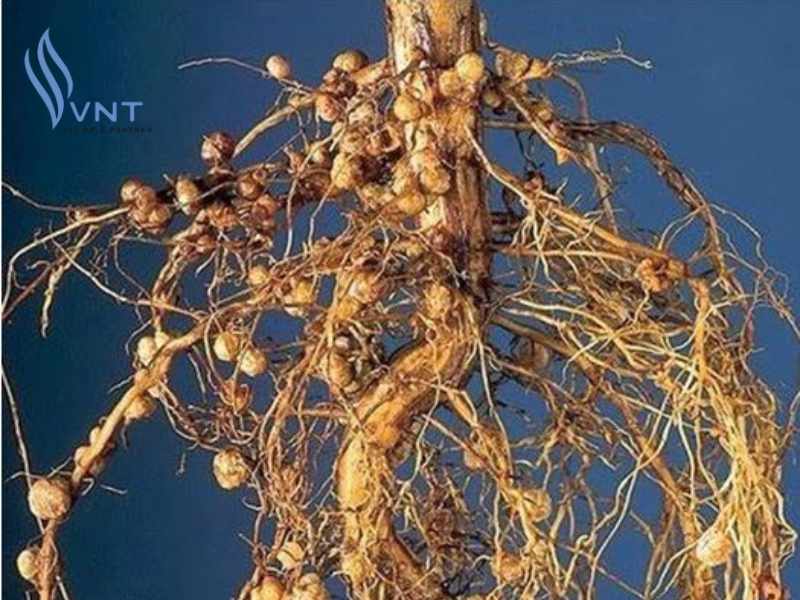
Nitrogen-fixing microorganisms in nodules
2. Phosphorus-decomposing and metabolizing microbial fertilizer
Like Nitrogen, Phosphorus is also essential for plants. It participates in the formation of cell membranes, nucleic acids, accelerates the ripening process of fruits in plants, and increases root development.
Plants can only absorb phosphorus in an easily absorbed form in the soil. Phosphorus in a form that is difficult to dissolve in the soil cannot be absorbed by plants (usually the P utilization efficiency of plants is not more than 25%). Therefore, there are many types of soil such as red basalt soil, black soil, etc. with a fairly high phosphorus content in the soil, but plants cannot absorb it because phosphorus is in a form that is difficult to dissolve.
Phosphorus-decomposing and metabolizing microbial fertilizers are the solution to this problem. Fertilizing with this microbial fertilizer will provide soluble phosphorus to plants, not making the soil acidic and helping plants absorb nutrients in the soil better.
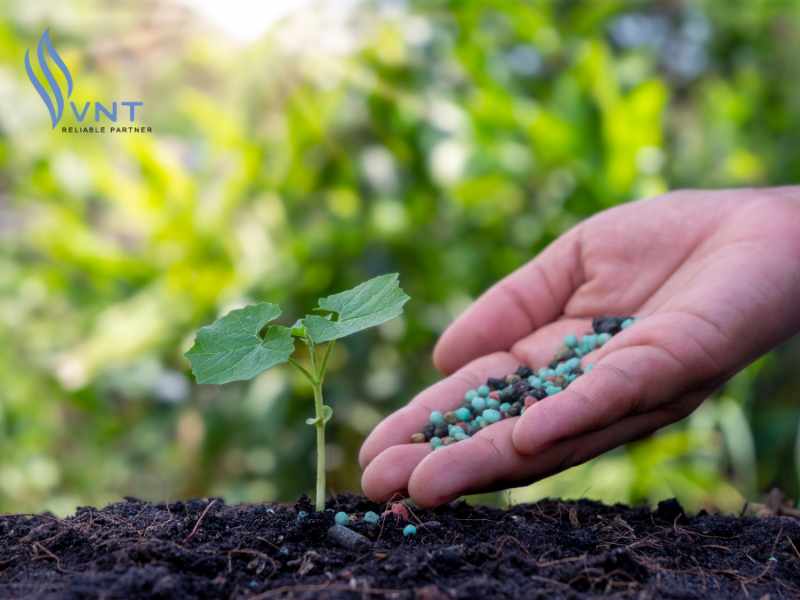
Microbial fertilizers that transform and decompose phosphorus
3. Microbial fertilizers that decompose humus and organic compounds
Microorganisms that decompose humus (of cellulose origin) are strains of microorganisms that use cellulose to develop and grow. Microbial fertilizers that decompose humus (commonly known as cellulose-decomposing microorganisms) are fertilizers containing one or a mixture of cellulose-decomposing microorganisms.
These microorganisms are all cultured in the laboratory to achieve a standard cell density, to help crops
+) Provide nutrients to soil and crops
+) Increase crop yields
+) Increase resistance to harsh weather and pests for crops
+) Increase soil fertility
In particular, this type of fertilizer is also non-toxic, so it can be applied directly to crops just a few days before harvest.
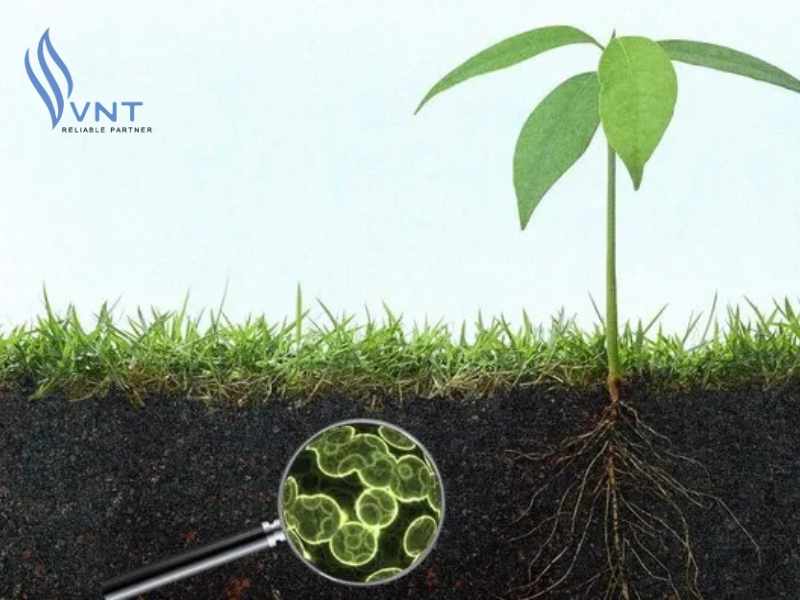
Microbial fertilizers decompose humus
4. Microbial fertilizers stimulate growth
In addition to the above types of microbial fertilizers, microbial fertilizers stimulate growth as well. Microorganisms have the ability to stimulate plant growth, stimulate root development. A healthy root system will absorb more nutrients to nourish the plant.
What is the difference between microbial fertilizers and organic microbial fertilizers?
The characteristics of microbial organic fertilizers that are different from microbial fertilizers are:

What is the difference between microbial fertilizers and organic microbial fertilizers?
Through this article, we have answered the question of what is microbial fertilizer? What is the difference between microbial fertilizers and organic microbial fertilizers? If you need to buy microbial fertilizers or other types of fertilizers, come to VNT. Always upholding the value of customers, we always serve customers wholeheartedly.
Contact us to order to receive many attractive incentives now!!



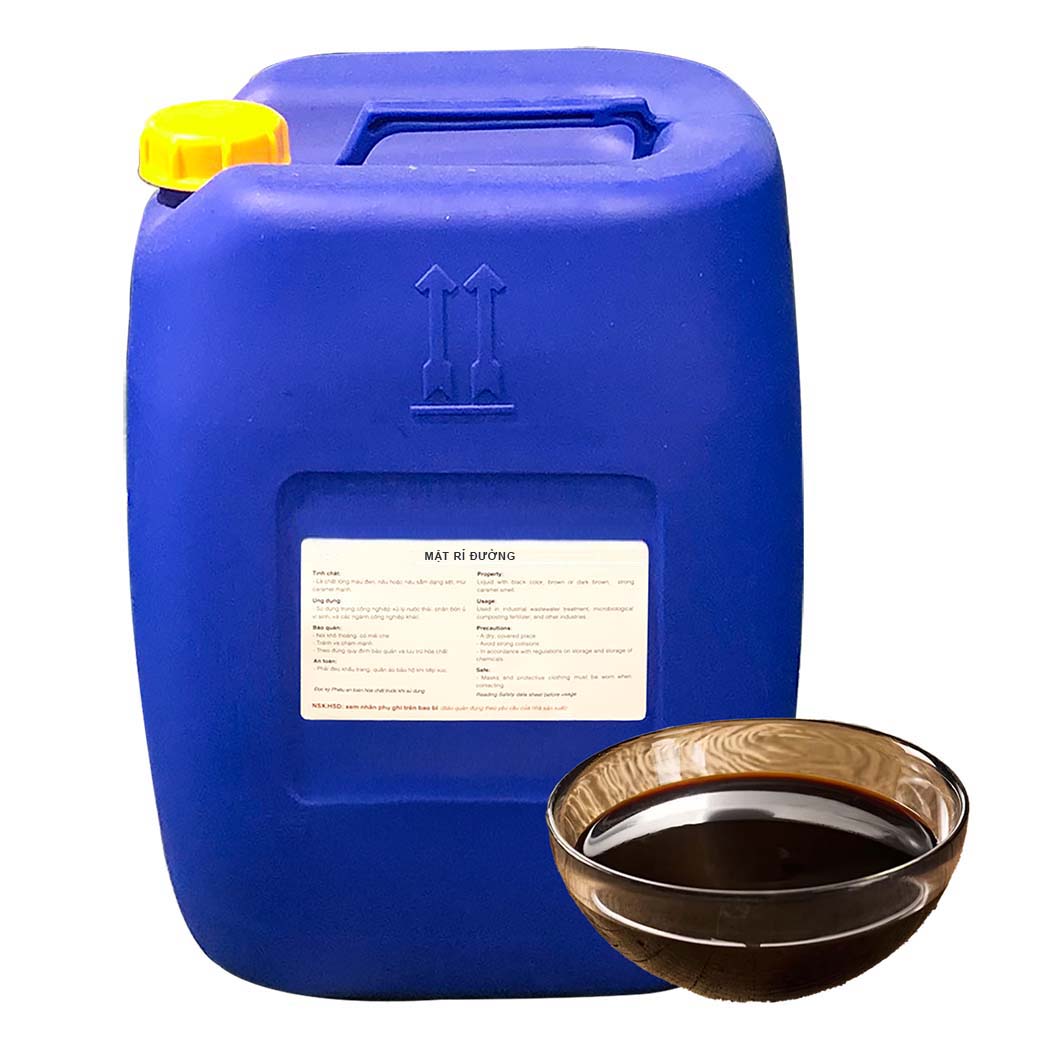
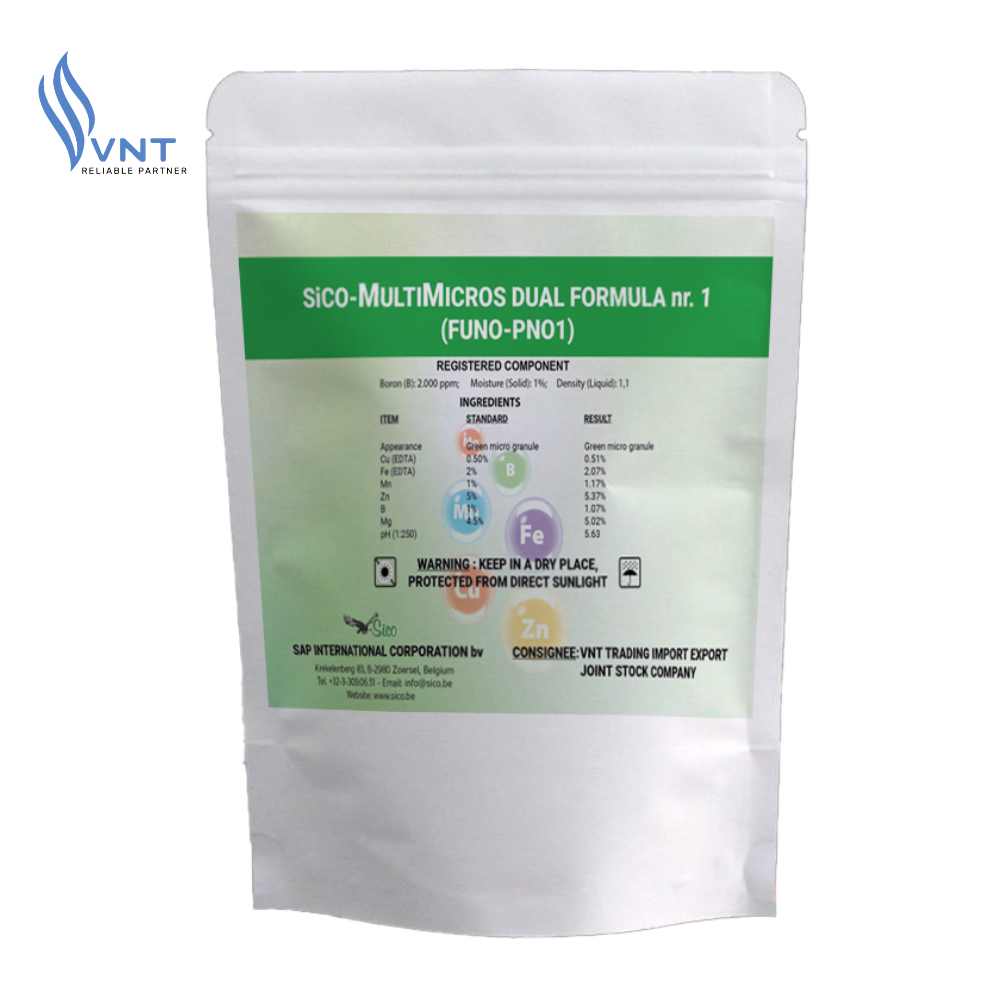
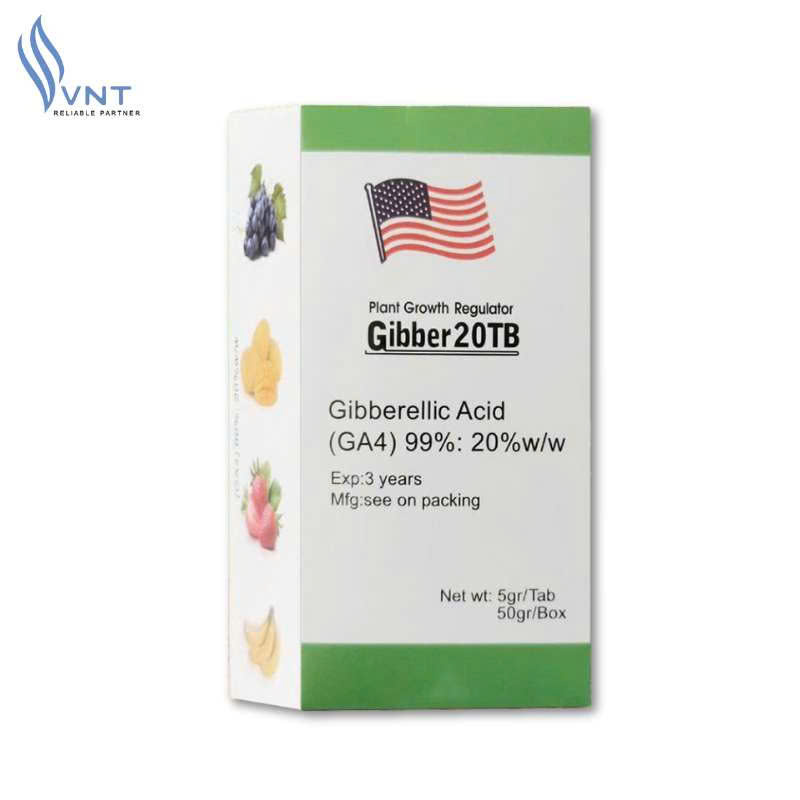
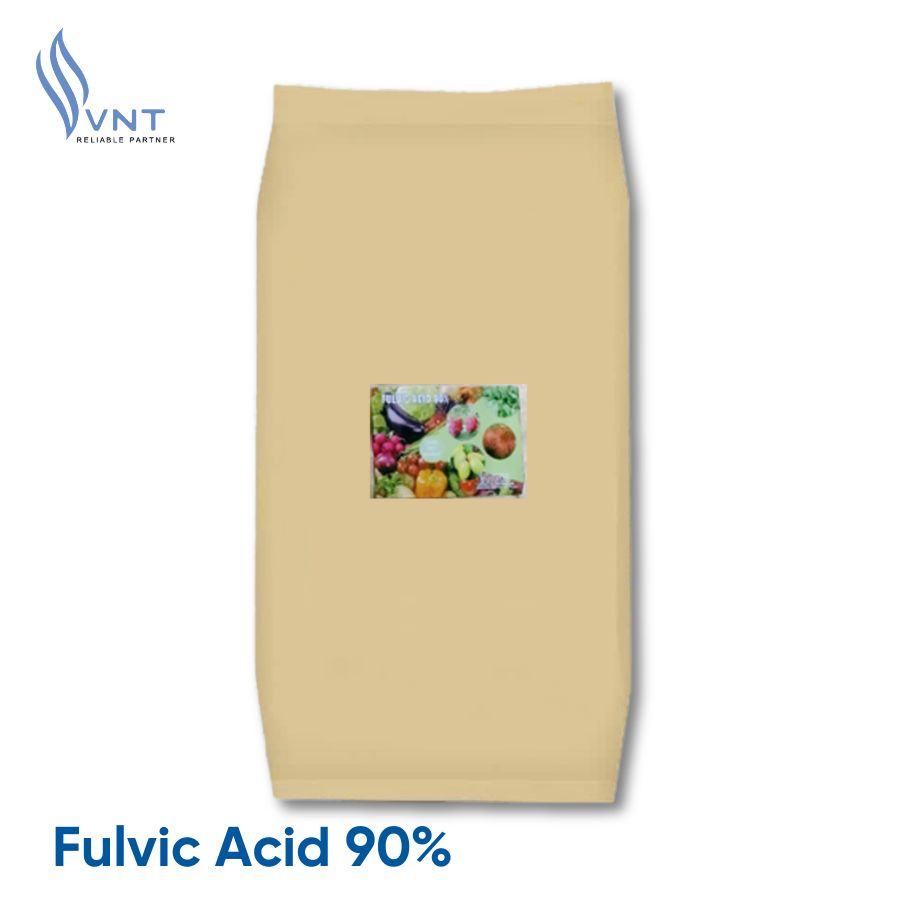
![[Q&A] How Long After Applying NPK Fertilizer Can You Eat Vegetables?](https://vntradimex.com/public/files/news/bon-phan-npk-cho-rau-bao-lau-thi-an-duoc-685e204cde416.jpg)
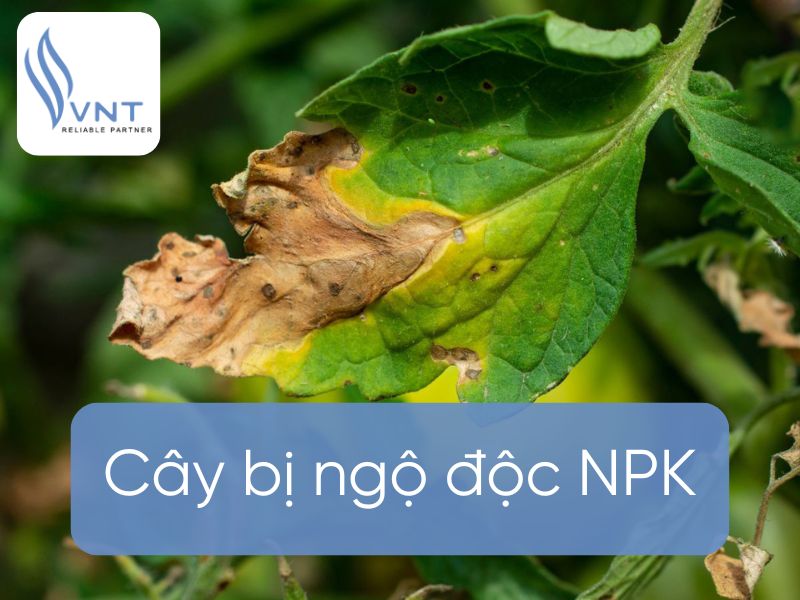
![[SHARE] How to use NPK fertilizer properly that everyone should know!](https://vntradimex.com/public/files/news/cach-dung-phan-bon-npk-dung-cach-682c46ab907d2.jpg)




